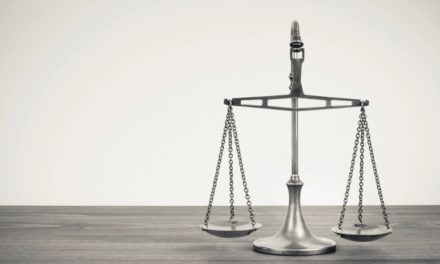Madame Wikipedia is as good a place as anywhere to start. She says, “Diversity, equity, and inclusion, usually abbreviated DEI, refers to organizational frameworks which seek to promote ‘the fair treatment and full participation of all people,’ particularly groups ‘who have historically been underrepresented or subject to discrimination’ on the basis of identity or disability. These three notions, diversity, equity, and inclusion, together represent ‘three closely linked values’ which organizations seek to institutionalize through DEI frameworks. Some experts say diversity and inclusion should be decoupled in some cases.”[1]
Those three words are desired traits in all of us, but have special ethical components.
Merriam-Webster says, “Diversity is the condition of having or being composed of differing elements, especially the inclusion of people of different races, cultures, etc. in a group or organization. And in programs intended to promote diversity in schools.”[2]
NACE, The National Association of Colleges, and Employers says, “The term Equity refers to fairness and justice and is distinguished from equality: Whereas equality means providing the same to all, equity means recognizing that we do not all start from the same place and must acknowledge and make adjustments to imbalances. The process is ongoing, requiring us to identify and overcome intentional and unintentional barriers arising from bias or systemic structures.”[3]
The Cambridge Dictionary defines Inclusion as, “The act of including someone or something as part of a group, list, etc., or a person or thing that is included.”[4]
These three compatible words, when grouped into a formative phrase, Diversity Equity & Inclusion, are a breakthrough for the U.S., a political debate, a harsh reality, and an opportunity. They are changing how and who counts in this country. And they come with clear ethical imperatives.
The Plank Center is a leading global resource for practitioners, educators, and students who are enthusiastic about advancing their careers and the public relations profession. It has embraced DEI at several levels, including the ethics of DEI. “We expect many things from leaders in our organizations. We look to them for solutions when times are challenging, and we expect them to do what is right. We trust them to make ethical decisions daily and hope their moral compass points due north. . . The success of diversity, equity, and inclusion is dependent on ethical leaders and decision-makers. Diversity, equity, and inclusion efforts would not have a spotlight today if it wasn’t for ethical leaders in the public relations and communications field. We are seeing more practices and plans that foster inclusive work environments for employees of different backgrounds and that is due to the push from ethical decision-makers, social expectations, and social justice expectations. . . These efforts must be directed by trustworthy, responsible, and ethical leaders.” [5]
The first two ethical imperatives are trustworthiness and responsibility. They apply not just to social workers or business organizations. They clearly apply to writers writing about DEI. A deeper inquiry into DEI requires at least a brief look at diversity versus inclusion. “Diversity and inclusion are often viewed the same way. However, there are important differences. The U.S. government’s Office of Personnel Management indicates that diversity is hiring and retaining employees that ‘reflect America’s diversity,’ while inclusion is making them feel motivated, and a true part of the organization.”[6]
Sadly, there is a harsh political reality to DEI. Republicans and Democrats see DEI through different political lenses. “Republicans have long called themselves champions of free market capitalism, decrying harm they claim is caused by too much government regulation. Yet some now favor regulations and laws restricting the freedom of businesses to voluntarily adopt policies promoting diversity, equity, and inclusion. Companies embracing DEI believe it is in their self-interest to increase hiring, acceptance, and advancement opportunities for qualified employees from underrepresented groups — including women, Black, Hispanic and LGBTQ Americans and people with disabilities. . . An August 2023 Harris Poll shows that Republicans opposing DEI programs are out of step with most Americans. . . The poll, commissioned by the Black Economic Alliance Foundation, shows that 78 percent of Americans “support businesses taking steps to make sure companies reflect the diversity of the American population.”[7]
The Illinois CPA Society issued a Fall 2023 Report detailing the connection between ethics and DEI. “The Ethics of DEI—Cultivating a Positive Workplace. While there continues to be significant ethical considerations about diversity, equity, and inclusion in the workplace, and in society as a whole, the benefits of these initiatives are clear. When organizations spend time focusing on DEI, they create more positive and collaborative environments for themselves and others. The merits of effective DEI initiatives will lead to better decision-making, more innovation, improved employee satisfaction, enhanced brand reputation, and positive social and community impact. The foundation of DEI relates to the ethical principle of upholding the equity of every individual’s contributions and their right to equal respect. The intent is to preserve the value of each individual and identify the right opportunities for personal and professional growth.”[8]
While DEI is a solid movement and is making headway in the business world, there is harsh criticism and pushback from conservatives and the Republican Party. To understand this, it is necessary to recall recent history. On January 11, 2024, CNN reported that DEI was under siege.
“When the murder of George Floyd by Minneapolis police set off a wave of racial unrest across the country in 2020, corporate America responded swiftly with renewed and public commitments to diversity, equity, and inclusion. Major companies created new DEI positions or expanded teams dedicated to DEI and the phrase became a buzzword across the business landscape. Many corporate leaders pledged to hire more people of color, removed branding perceived to be racist, and invested in historically Black colleges. At the time, the efforts were largely met with public support, amid a so-called ‘racial reckoning’ that laid bare a slew of systemic inequities in American society, including the workplace. But nearly four years later, the very public ousting of Harvard’s first Black woman president earlier this week has led to a new firestorm of debate about DEI efforts in corporate America and beyond. . . DEI initiatives in corporate America have long faced skepticism from both sides of the political aisle – with some voices on the left blasting these efforts as corporate window dressing that focuses more on publicity than enacting real change for people of color in the workplace. Others on the right, meanwhile, have taken aim at these efforts, which they say unfairly disadvantage White workers. . . Shaun Harper, a USC professor and founder and executive director of the USC Race and Equity Center, said there are many misconceptions about DEI. It wasn’t, as some critics have claimed, created to exclude White people or White men from the workforce. . . many companies with DEI offices offer training that teaches employees how to unlearn stereotypes against certain groups, respect each other’s differences, and hire people of color without overlooking them because of personal bias.”[9]
The White House and President Biden are strong supporters of DEI. “By the authority vested in me as President by the Constitution and the laws of the United States of America . . . in order to strengthen the Federal workforce by promoting diversity, equity, inclusion, and accessibility, it is hereby ordered as follows: Section 1. Policy. On my first day in office, I signed Executive Order 13985, ‘Advancing Racial Equity and Support for Underserved Communities Through the Federal Government’ which established that affirmatively advancing equity, civil rights, racial justice, and equal opportunity is the responsibility of the whole of our Government. To further advance equity within the Federal Government, this order establishes that it is the policy of my Administration to cultivate a workforce that draws from the full diversity of the Nation.”[10]
Former President Donald Trump is, as expected, on the other side and seemingly detests the thought that white men might not hold on to their power in government and the business world. “In September 2020 then-President Donald Trump issued an executive order banning the federal government and contractors, subcontractors, and grant recipients from getting government funds from providing a wide range of diversity training for employees on racial and gender bias. Trump falsely said such training was ‘racist’ and was ‘teaching people that our country was a horrible place.’” [11]
Trumpisim notwithstanding, there is a small but focused group working hard and quietly to support DEI in colleges. “About a year ago, as state legislatures grew interested in dismantling higher ed’s diversity, equity, and inclusion efforts, a small group of college presidents started getting together to discuss what they could do about it. . . Now the group has a name, Education for All, and has grown to nearly 150 presidents, mostly at community colleges. . . The push to ban diversity, equity, and inclusion measures on public college campuses is now in its second full year and shows no signs of abating. The results of that effort have been slow but steady, with five states having enacted laws prohibiting public colleges from having diversity, equity, and inclusion offices or staff members; requiring diversity training; using diversity statements in hiring and promotion; or considering race, sex, ethnicity, or national origin in admissions or employment.”[12]
On January 20, 2024, the New York Times published an essay by Nicholas Confessore aptly titled America Is Under Attack: Inside the Anti-DEI Crusade. “In recent decades, amid concerns about the underrepresentation of racial minorities on campus, American universities have presided over a vast expansion of diversity programs. These have come to play a powerful — and increasingly controversial — role in academic and student life. Critics have come to view them as tools for advancing left-wing ideas about gender and race, or for stifling the free discussion of ideas. In response, officials in some states have banned D.E.I. offices altogether. Others have limited classroom discussion of concepts like identity politics or systemic racism. A growing number of states and schools have also begun eliminating requirements that job applicants furnish “diversity statements” — written commitments to particular ideas about diversity and how to achieve it that, at some institutions, have functionally served as litmus tests in hiring.[13]
Forbes headlined the pivotal question on July 16, 2023: Is Diversity Equity and Inclusion Officially Dead?[14] “For the last few years, it seems that the anti-DEI sentiment has gained traction, and old habits have indeed been hard to break. The Supreme Court’s decision to end Affirmative Action and strip away LGBTQIA+ rights has furthered the DEI hate train. The critiques of DEI have been escalating; in 2020 President Trump issued a diversity training ban and almost three years later, conservatives are hoping to limit DEI efforts. So then, what is the future of DEI? When this question was asked to an audience on LinkedIn via a poll, the results garnered some interesting findings. Out of over 500 responses, 40% of respondents felt that the future of DEI is less investments and funding in DEI. Twenty-five percent of respondents indicated that there will be less focus on race and racism in DEI efforts. Nineteen percent of respondents said that what we’re seeing now is the end of DEI as we know it, and 16% felt that DEI would stay the same. Several factors point to a shift in the DEI landscape. . . Anti-racism should be the nucleus of any DEI efforts; a failure to prioritize racial equity in DEI work means that inequities will continue to persist. The result of the divestment from DEI will have deleterious effects on racial diversity in the workplace. Deprioritizing DEI means that racial disparities will widen. Many of those hardest hit by layoffs, particularly in tech, are Black workers, as well as workers from other marginalized and underrepresented backgrounds. Workplaces that adopt race-neutral policies will hinder their ability to find the best and most competitive talent. . . Though anti-DEI sentiments seem to be rising, DEI is far from over. This is just one of the many metamorphoses that the industry will experience. . . DEI can’t die as long as there are people. Our diversity is what makes us humans . . . if we want to coexist peacefully in these shared spaces, DEI is a requirement. Folks may want to call it something else, but the core goal—fostering understanding and fairness amongst people—continues to be the same.”
Forbes is right, but still, the ethics of DEI is a metamorphoses in its own right. It’s an ancient myth. Just as Apollo chased the nymph Daphne, she screamed at her father for help. But help was busy that day. Instead, someone got turned into a spider. The analogy doesn’t quite fit. We can only hope that conservatives can be turned into butterflies and give strength and substance to DEI by giving up racist and bigoted notions.
[1] https://en.wikipedia.org/wiki/Diversity,_equity,_and_inclusion
[2] https://www.merriam-webster.com/dictionary/diversity
[3] https://www.naceweb.org/about-us/equity-definition
[4] https://dictionary.cambridge.org/us/dictionary/english/inclusion
[5] https://plankcenter.ua.edu/diversity-inclusion-depends-on-ethical-decision-makers/
[6] https://www.workplaceethicsadvice.com/2023/05/dei-in-the-workplace.html
[7] https://thehill.com/opinion/civil-rights/4186272-republicans-are-at-war-with-corporate-america-over-diversity/
[8] The Ethics of DEI: Cultivating a Positive Workplace (icpas.org)
[9] https://www.cnn.com/2024/01/07/us/dei-attacks-experts-warn-of-consequences-reaj/index.html
[10] https://www.whitehouse.gov/briefing-room/presidential-actions/2021/06/25/executive-order-on-diversity-equity-inclusion-and-accessibility-in-the-federal-workforce/
[11] Diversity, equity and inclusion programs are under unjustified attack. America needs them. – TheGrio
[12] https://www.chronicle.com/article/college-presidents-are-quietly-organizing-to-support-dei
[13] https://www.nytimes.com/interactive/2024/01/20/us/dei-woke-claremont-institute.html
[14] https://www.forbes.com/sites/janicegassam/2023/07/16/is-diversity-equity-and-inclusion-officially-dead

I am an author and a part-time lawyer with a focus on ethics and professional discipline. I teach creative writing and ethics to law students at Arizona State University. Read my bio.
If you have an important story you want told, you can commission me to write it for you. Learn how.






 I am an author and a part-time lawyer with a focus on ethics and professional discipline. I teach creative writing and ethics to law students at Arizona State University.
I am an author and a part-time lawyer with a focus on ethics and professional discipline. I teach creative writing and ethics to law students at Arizona State University.  My latest novel is Hide & Be.
My latest novel is Hide & Be.  If you have an important story you want told, you can commission me to write it for you.
If you have an important story you want told, you can commission me to write it for you.